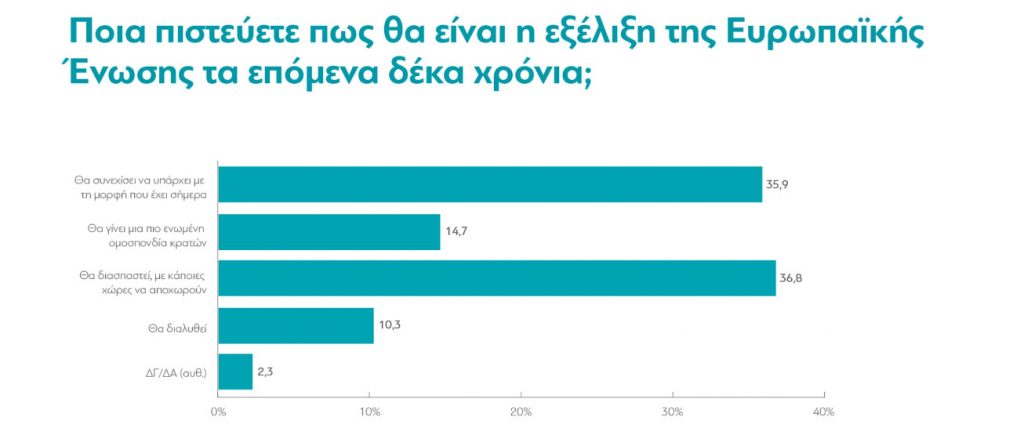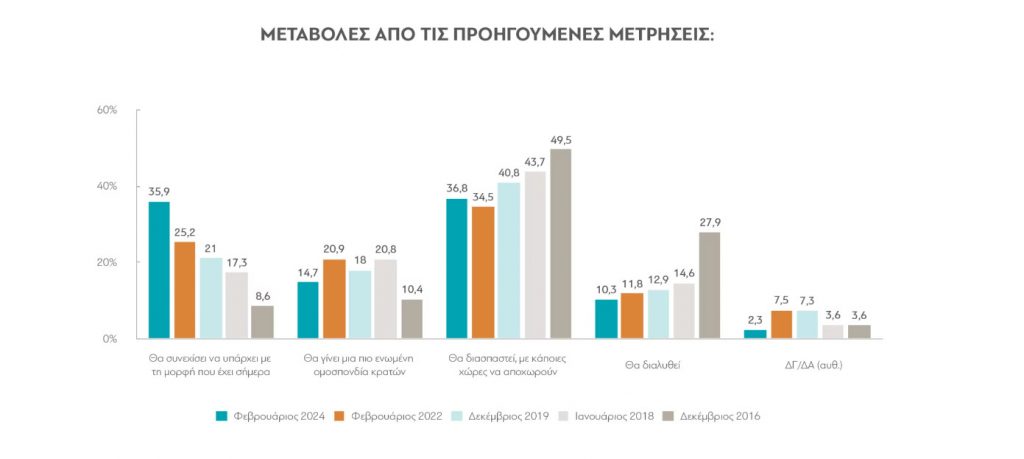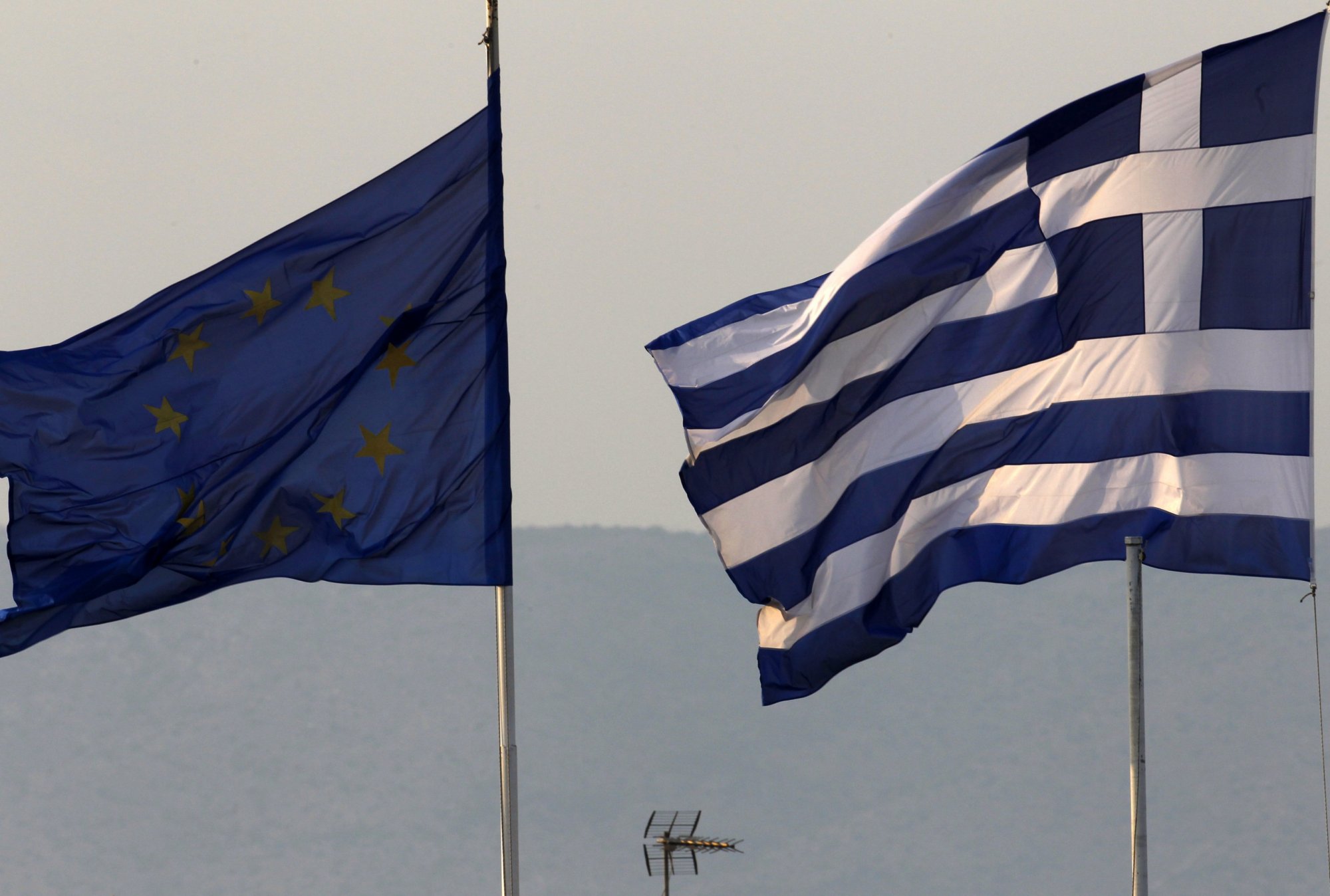Greeks have a favorable stance towards the EU, according to the latest survey conducted by DiaNEOsis, with the majority of the respondents in the study having a positive sentiment toward the country’s participation in the largest union of states in the world.

The results revealed that 64.8% of Greeks view the country’s participation in the European Union positively. Despite this, opinions are divided over the future of the EU, as 36.8% of those surveyed believed that the Union would fragment in the coming years, with some member states leaving. In contrast, 35.9% think the EU will continue to exist in its current form, and 14.7% predict it will evolve into a more united federation of states.

Greeks seem more optimistic about the EU’s future, with the percentage of people who believe the EU will dissolve or split notably down, while the percentage of those who think it will remain as it is has steadily increased.
Greeks Desire More European Integration
The survey showed that Greeks (over 70%) appeared to want a more active role of EU institutions in various aspects of their lives, including health and environment (83.8%), defense (78.3%), education (77.3%), as well as the economy, immigration, and foreign policy. Additionally, 65% of citizens agree with the expansion of the EU to include new member states.
Despite Greeks desiring increased EU involvement in various sectors, surprisingly many seem oblivious of the current efforts and programs running in the EU. A recent survey about the Recovery Fund revealed only 35.9% of participants were aware of the Recovery Fund.
The finding becomes even more astonishing, considering that Greece is the most benefited country in the Union from this fund, in terms of GDP.
Among those who are aware of the Recovery Fund, about half consider it “very” or “extremely important” for the country’s development, while 32.2% view it as “moderately important.”
DiaNEOsis is an independent, non-profit think-tank that conducts research on important issues to contribute
concrete and conclusive policy proposals to Greek public discourse.




